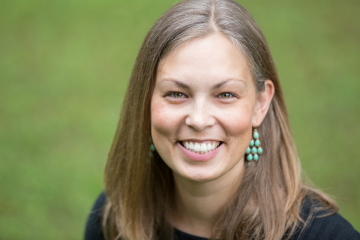
Biography
Trina Isakson supports non-profit executives with bold and future-oriented projects. Through research, facilitation, strategy, and process design, she helps leaders answer important questions and helps organizations move forward in changing times. Her clients include local, regional, and national non-profit organizations, as well as government and higher education departments that serve community. She has taught a variety of university courses on community development and non-profit leadership and management, and is founder of the Quiet Change maker Project.
Trina’s formal education includes an MBA in community economic development from Cape Breton University, Bachelors of Education and Science from UBC, and a Certificate in Dialogue and Civic Engagement from SFU.
Trina designs her days to prioritize time in the garden and in the mountains. She grew up in Salmon Arm BC and, after a long stint in Vancouver, lives on Tla’amin territory in Powell River.
Meeting Trina
What is your most memorable experience from your time in the Faculty of Education at UBC?
I was in my second week of classes when 9/11 happened. It was a first-hand experience on the importance of addressing current events and acknowledging trauma in the classroom or workplace, even if it’s doesn’t feel relevant to course material or work. Traumatic events, whether immediately personal, or connected more broadly to a personal identity or feelings of community and safety, impact our ability to learn and be present.
Where has your education from Faculty of Education taken you in your career?
While I’m no longer a teacher, I still consider myself an educator. Since my time as a secondary science and math teacher, I have worked in post-secondary experiential learning and student development, have taught at the undergraduate and graduate level in post-secondary, and continue to lead workshops and facilitate groups in my consulting practice. Some of the fundamentals such as developing learning outcomes, engaging groups of learners, and feeling comfortable in front of a room are still important, though the groups I work with now are adults.
Where do issues of inclusion find a place in your life or at work?
Everywhere. In my consulting practice I work with community and non-profit sector leaders, and perhaps the most prominent issues facing these organizations are justice, equity, and inclusion, and how we fail ourselves and each other when we aren’t able to consider each other’s fully humanity in our view of the world and the workplace. Over time I’ve shifted the work I do and how I do it – being more likely to name and facilitate difficult conversations around justice and equity, sharing my mistakes and how I’m learning from them, adjusting my facilitation practices, and being more comfortable knowing when to refer work to other consultants, when to partner, or when to lead the difficult work myself.
In my personal life, I recently moved from Vancouver to a much less diverse community, and I try to keep issues of racial equity, transphobia, classism, etc. in conversation. The saying “an absence of presence does not mean a presence of absence” comes to mind – just because I don’t experience it, doesn’t mean it’s not there.
Do you have any words of wisdom for current students? Any advice for newly graduated folks?
During my B.Ed. ‘reflection’ was a large theme, and as students we often joked about how much we were asked to reflect, and to reflect about our reflections. But so much of the sense of peace I have in my daily life now comes from the many times that I’ve prioritized reflection, personal development, and getting ‘meta’ about who I am and what I value. It’s given me the opportunity to be kinder to myself, and be more gracious with others. I’m better able to assess opportunities and confidently make changes in my life. And I’m able to prioritize what’s important, what brings me joy, and what is just. I wish the same for everyone.